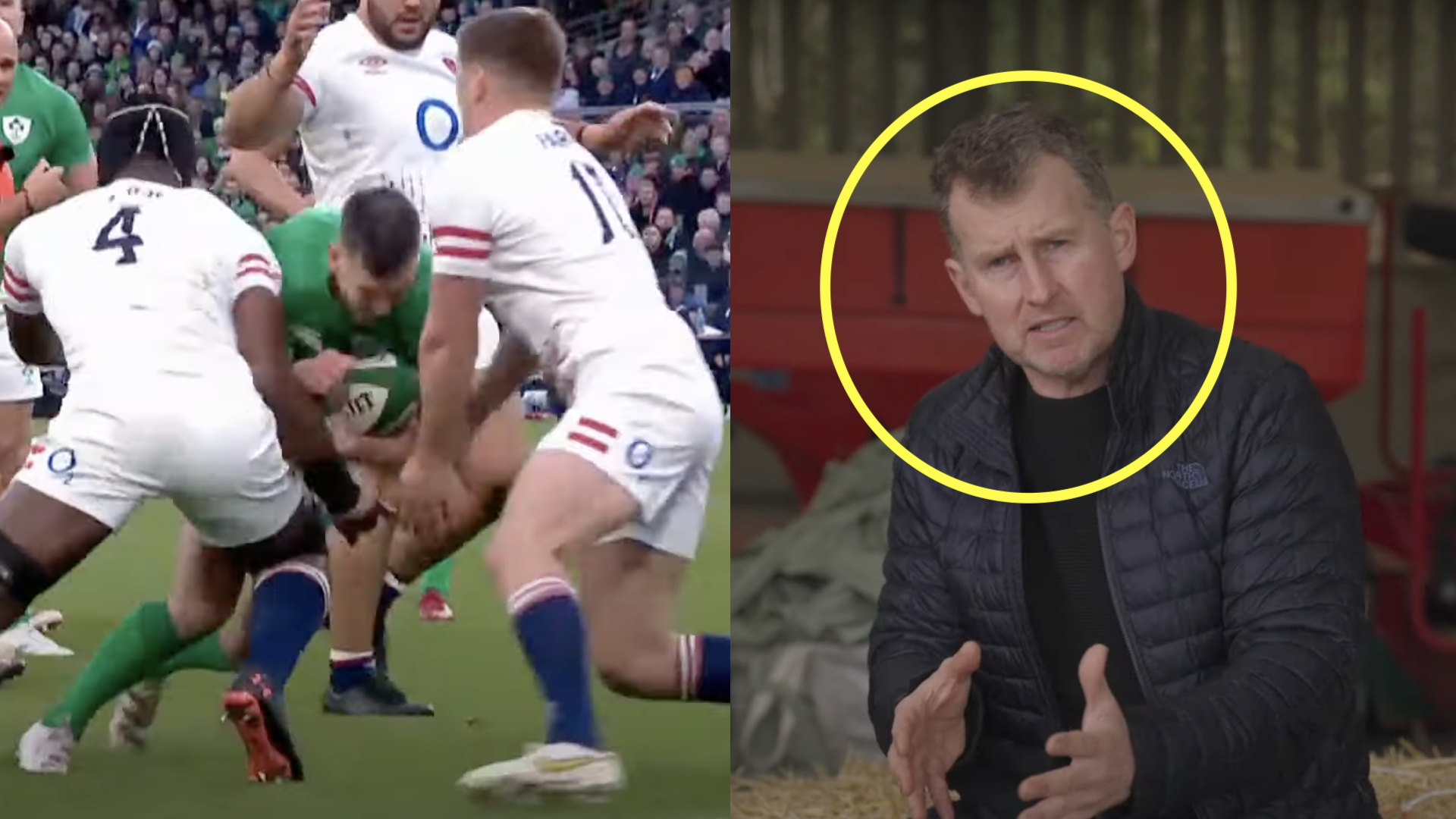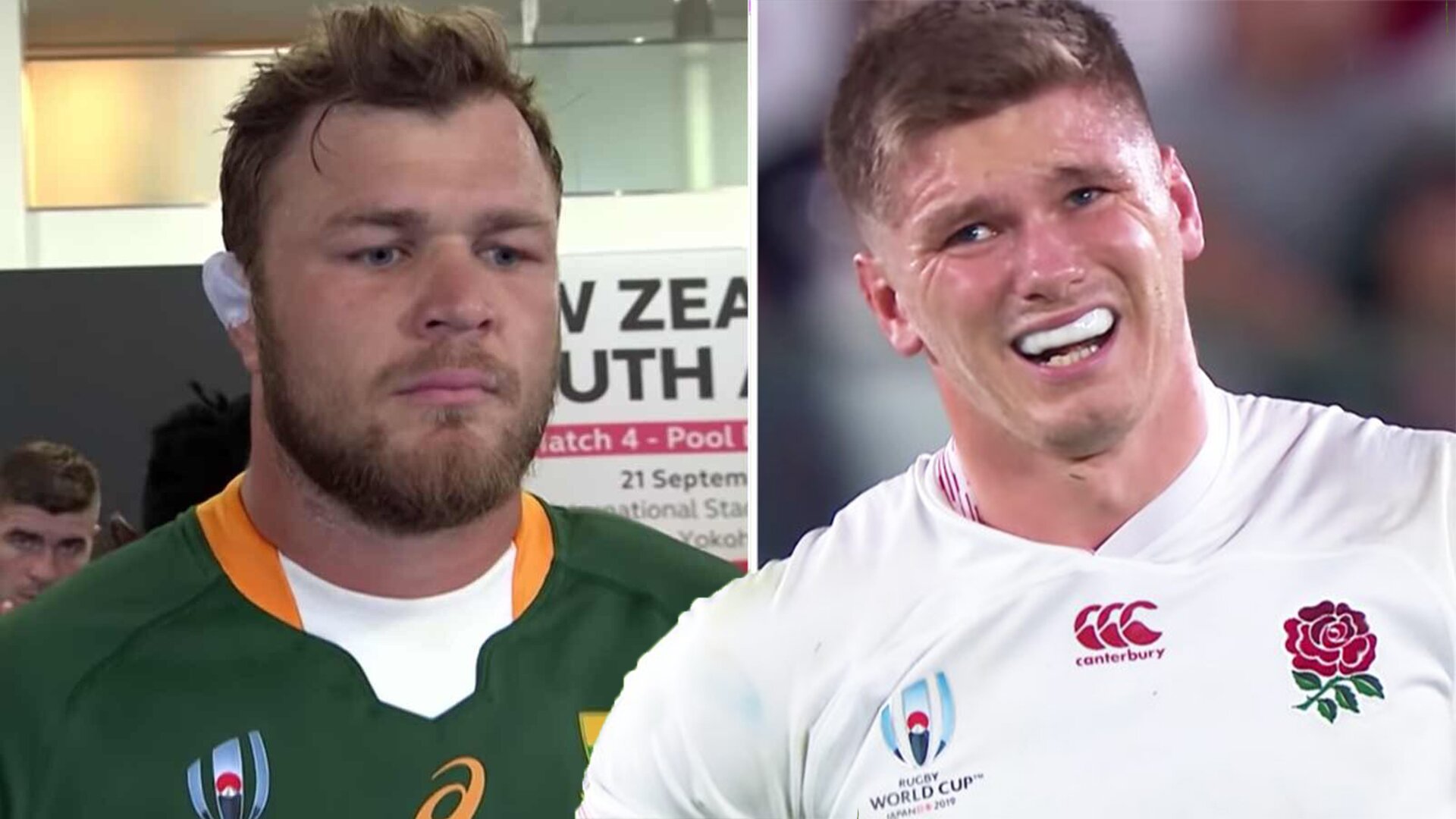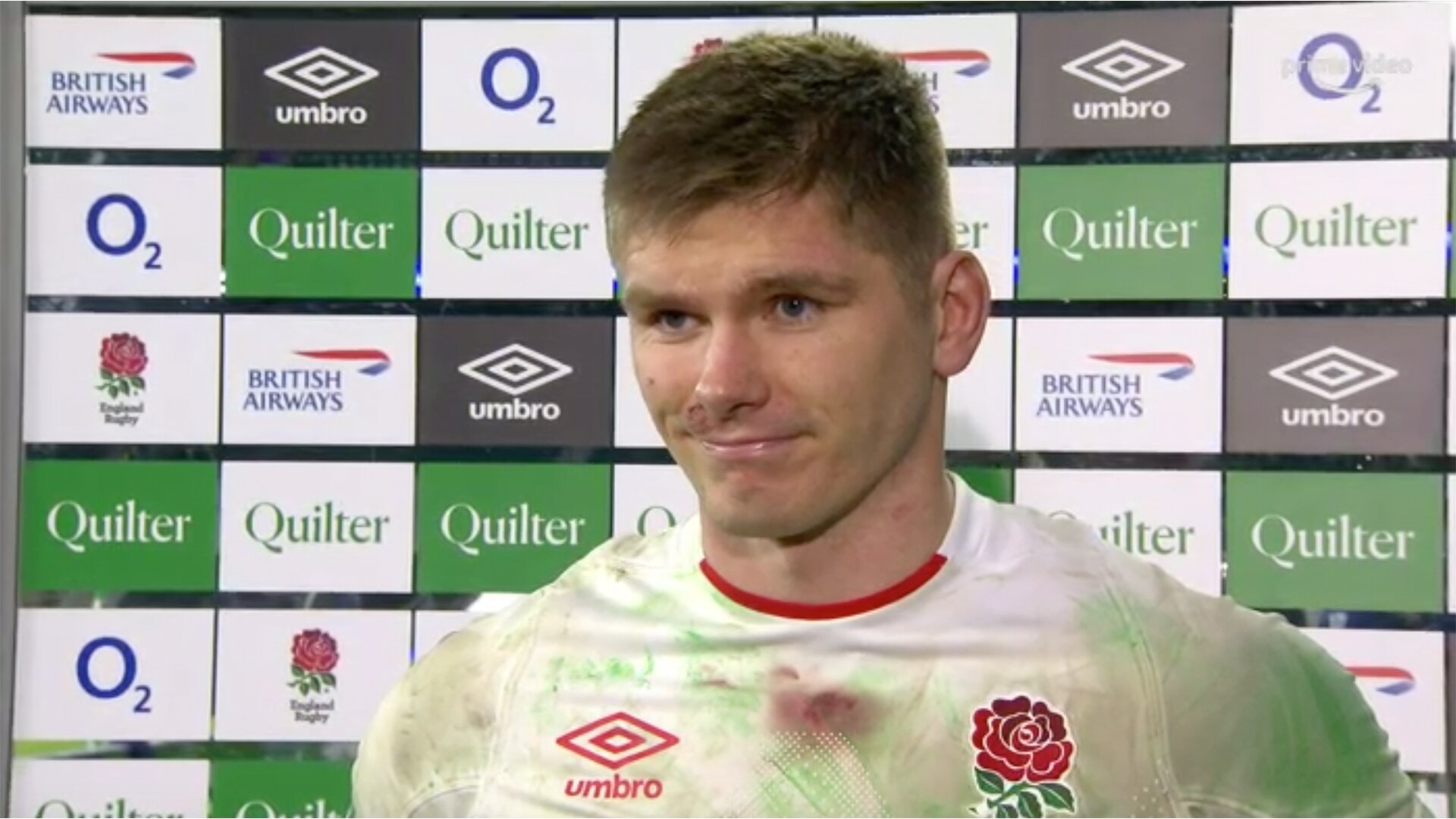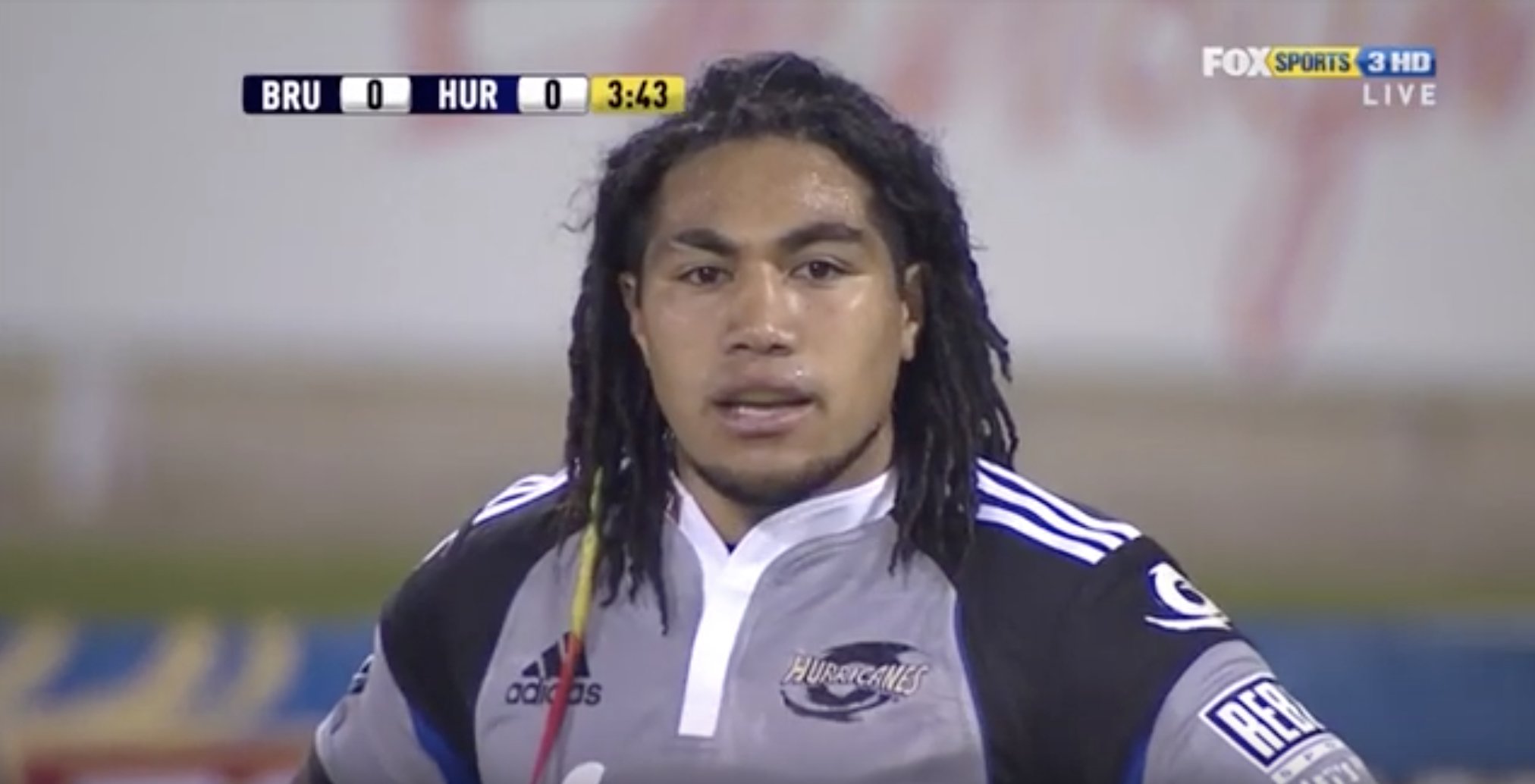
Nigel Owens explains why Owen Farrell and Maro Itoje are rugby geniuses
There was a moment on Saturday as Ireland faced England at the Aviva Stadium which at first viewing looked like a yellow card (and no, it does not involve Freddie Steward).
The moment came with just over ten minutes played, with Ireland camped on England’s line. The hosts were awarded a penalty by referee Jaco Peyper, whereby Johnny Sexton took a quick tap and darted towards the line from five metres out. However, he was tackled by his counterpart Owen Farrell almost immediately, despite the England captain no retreating back to his try line. Sexton was held up, but, as expected, Peyper was soon met by a chorus of ‘not five’ complaints from Sexton and his team.
This was reviewed by Peyper, and it turned out that Farrell was put onside by his teammate Maro Itoje, who assisted him in the tackle.
Nigel Owens has helped explain that law this week in World Rugby’s Whistle Watch, saying: “Itoje, quick tap, was Itoje offside? Itoje is on the try line, so if the quick tap is five metres out you don’t have to be ten metres back because the try line is closer than ten metres. So, he is back on the try line, he is legal, once he comes up to make the tackle, Farrell, who is now retreating, is then put onside once Itoje, who is onside, passes him. So, that tackle, the turnover is completely legal, they’re onside, play on, goal line drop out.”
Take a look:
Though most rugby players should know the laws of rugby, this was a decision that had to be made in a split second by Farrell, knowing that if Itoje does not put him onside he will probably be sin binned for not retreating back to the line. England players should be expected to know the laws of rugby (though they had been caught out this Six Nations- chiefly with Charles Ollivon’s second try at Twickenham), but it is the speed of thinking here from Farrell that is the most impressive.


